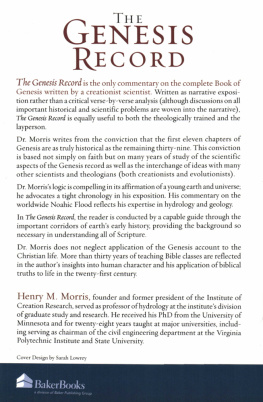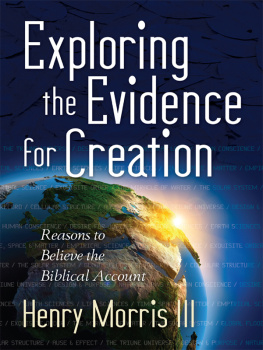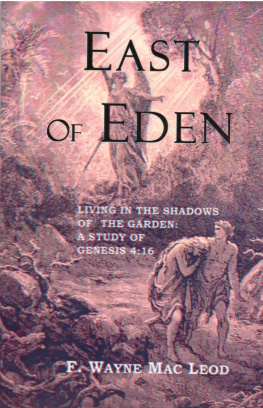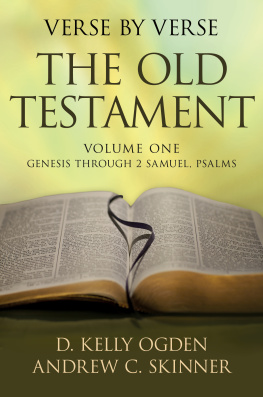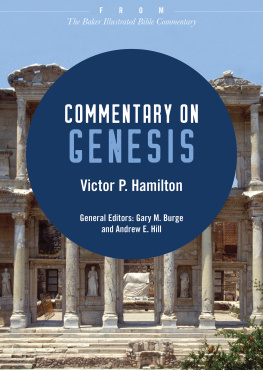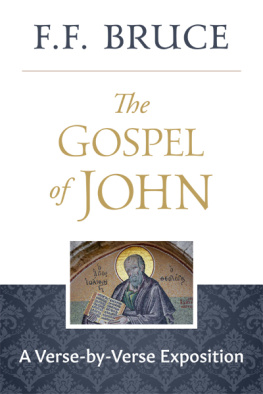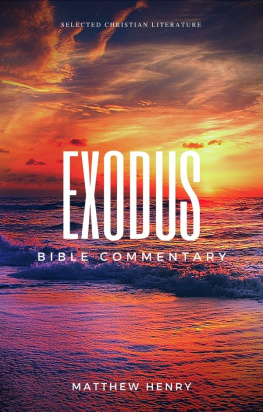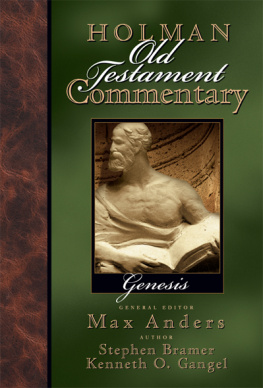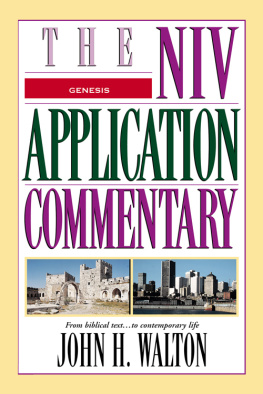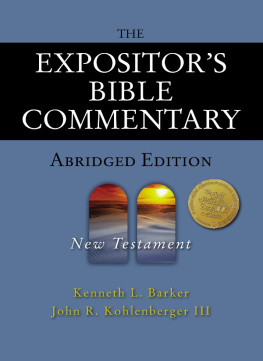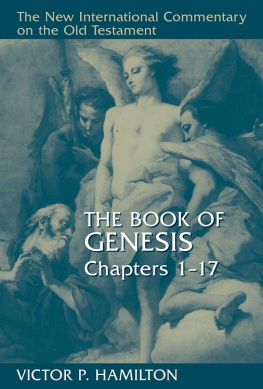
1976 by Henry M. Morris
Published by Baker Books
a division of Baker Publishing Group
P.O. Box 6287, Grand Rapids, MI 49516-6287
www.bakerbooks.com
Ebook edition created 2013
All rights reserved. No part of this publication may be reproduced, stored in a retrieval system, or transmitted in any form or by any meansfor example, electronic, photocopy, recordingwithout the prior written permission of the publisher. The only exception is brief quotations in printed reviews.
ISBN 978-1-58558-041-5
Library of Congress Cataloging-in-Publication Data is on file at the Library of Congress, Washington, DC.
Foreword
Although there are more than twenty commentaries on Genesis currently in print, there is a unique need for this one. So far as is known, this is the only commentary on the complete Book of Genesis written by a creationist scientist. Clearly, it takes such a scientist, as well as a writer with Biblical and theological acumen, to understand and expound this book of beginnings in depth.
In fact, if a Christian worker desires to develop a commentary shelf on Genesis for his library, he would do well to begin with this one. A reader usually merely consults a commentary, but this volume tempts one to read it at length. It is written as a narrative exposition rather than as a critical verse by verse analysis (although discussions of all important historical and scientific problems are woven into the narrative); hence it is difficult to lay it down.
Dr. Morris writes from the conviction that the first eleven chapters of Genesis are as truly historical as the remaining thirty-nine. This conclusion is not based simply on faith, but on many years of study of the scientific aspects of the Genesis records and of the interchange of ideas with many other scientists, both creationists and evolutionists. Since he and many of his colleagues are convinced that the earth and universe are young, rather than billions of years old, he advocates a tight chronology in expounding Genesis. In handling the account of the worldwide Noahic Flood, the author draws on his studies in hydrology and geology, in addition to his years of teaching hydraulic engineering.
The fact that Dr. Morris has not received formal theological training does not hinder him from handling the Biblical and theological implications effectively. There is evidence of wide reading and Bible study in depth. He has taught adult and college Bible classes regularly for over thirty years. One will also find many applications to the Christian life, with unusual insight into human character.
A thorough understanding of the Book of Genesis is necessary if one is to understand the rest of sacred Scripture. In this book, the reader is conducted by a capable guide through these important corridors of earth history.
Arnold D. Ehlert
Contents
PART ONE
INTRODUCTION TO GENESIS
PART TWO
GOD AND THE WORLD HE MADE
PART THREE
THE CHOSEN NATION
Testimony and Introduction
I first read the wonderful Book of Genesis fifty years ago, as a small boy. My mother had given me a Bible and, not knowing any better, I began to read on page 1. The great themes of Creation, the Fall, the Deluge, and the Dispersion, along with the absorbing stories of Abraham and the other patriarchs, all made a deep impression on a little boys mind.
I had been taught from earliest days that the Bible was Gods Word, and it never occurred to me in those childhood days to doubt any of these stories. Years later, however, the evolutionary teachings in college (Rice University), combined with years of lukewarm teaching in church and Sunday school during junior and high school years, left me with many questions. Consequently, I soon became what would now be called a theistic evolutionist. The great Creation and Flood stories could hardly be taken literally any more, and the tales of the patriarchs apparently had many legendary embellishments over their hidden core of facts. I practically stopped reading the Bible altogether during those college years, though I was still fairly regular in church attendance.
I had trusted in Jesus Christ for salvation as a very small boy, however, even before starting to school, and He would never allow one of His little ones to perish (John 10:27-30; Matthew 18:10-14). After graduating from college, a combination of influencesstarting to attend an evangelical church, joining the Gideons, hearing the World War II edition of Irwin Moons Sermons from Science , and, most of all, starting to read the Bible againeventually led me back to confidence in the full truth of Gods Word.
Returning to Houston later to teach at Rice gave the opportunity of trying to witness to college students concerning their need for Christ. These were intelligent students, most of them majors in science and engineering, and I quickly discovered that the same old questions that had troubled me (as well as several questions I had never thought of) were also hindering many others from believing. Central to all these problems was the question of the reliability of Scripture, especially the Book of Genesis. If Genesis were not historically trustworthy, then simple logic showed that neither was the rest of the Bible, including its testimony about Christ.
Thus began a study of the scientific and historical accuracy of Genesisa study which has engaged much of my interest for the past thirty years and more. Not only did this open numerous opportunitities for discussing questions related to Creation and early history, but also for pointing out to many the wonderful ways of God with man, especially His provision of salvation through Christ. The Bible became a living, exciting book, and God a very present help. What God planned and promised and prepared in Genesis, He accomplished and perfected in the coming of Christ, and is now, today, applying and fulfilling in the lives of those who believe His Word.
Over the years since that time, I have had many occasions to teach the Book of GenesisI would estimate a total of eight times. Each time is more exciting and instructive than the time before. The Book of Genesis is no mere collection of myths and legends; it is the actual, factual record of real events and real people at the beginning of history. Neither is the Book of Genesis merely a tedious scientific or theological treatise; it is an intimate diary of some of the greatest and most fascinating men and women who ever walked this earth. Furthermore, all of its scientific and theological inferences are profoundly important and literally true.
I can only hope that my own studies on this book, now set down here in The Genesis Record , will help make Genesis as real and thrilling to others as it has become to me. I am anticipating the opportunity soon, when the Lord returns, of getting personally acquainted with Noah and Abraham and Jacob and Rebekah and the other great men and women whose records have already been such a blessing in my own life.
I should say just a few words here about this commentary and its format. A narrative style has been followed, rather than that of a critical and analytical exposition. This is because it is so important for people to sense that the Genesis narrative is real and historical. At the same time, the treatment also deals with all the important critical questions and problems. In particular, the scientific difficulties usually associated with Genesis have been discussed and, I trust, completely resolved in favor of the literal accuracy of the Genesis record. I have tried to discuss and explain all the salient material in every verse, even though the discussion is organized in terms of groups of verses rather than individual verses.
Next page
